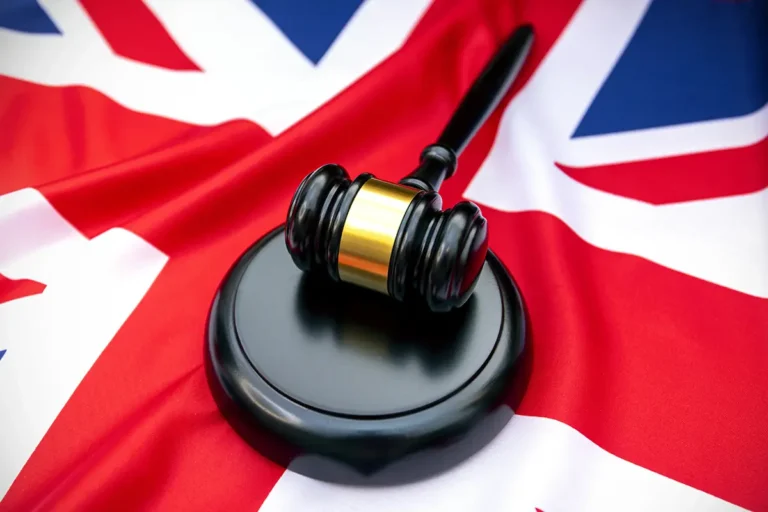
First-tier Tribunal Immigration Appeal
Has your UK visa or immigration application been denied? Our experienced immigration appeal specialists can assess the strength of your case, advise on the potential success of an appeal before the First-tier Tribunal (Immigration and Asylum Chamber), meticulously prepare your appeal documentation, and provide expert representation throughout your tribunal hearing.
This comprehensive guide outlines who is legally entitled to appeal to the First-tier Tribunal, the circumstances under which human rights or protection-based claims may be challenged, and the key restrictions affecting appeal rights. We also explain the time limits for filing an appeal, the various grounds available for contesting a decision, the step-by-step process for lodging an appeal with the Tribunal, and typical appeal timelines. In addition, we address several frequently asked questions to help you better understand the UK immigration appeal process.
Link and Day Lawyers are specialists in UK immigration law, offering clear and confident guidance at every stage. With a focus on precision and care, we support your journey from start to finish.
Understanding the First-tier Tribunal (Immigration and Asylum Chamber)
The First-tier Tribunal (Immigration and Asylum Chamber), often referred to as the First-tier Immigration Tribunal, serves as the primary judicial body that handles appeals against immigration-related decisions made by the UK Home Office. These decisions may involve matters such as visa refusals, applications for leave to remain, and deportation orders.
Operating independently from the Home Office, the Tribunal holds the legal authority to review and potentially overturn decisions that have been previously refused. This ensures that individuals have access to a fair and impartial process when challenging immigration determinations.
Right of Appeal to the First-tier Tribunal Against UK Visa or Immigration Refusals
Not all decisions made by the Home Office in immigration matters carry a right of appeal. However, under certain circumstances, you may be entitled to challenge a refusal decision by appealing to the First-tier Tribunal (Immigration and Asylum Chamber).
You are typically permitted to appeal when the Home Office has decided to:
Refuse a human rights claim or protection claim (commonly referred to as an asylum or humanitarian protection application), or revoke existing protection status;
Deny or revoke a residence document, or order deportation under the Immigration (European Economic Area) Regulations 2016, where transitional provisions apply;
Revoke your British citizenship;
Refuse or cancel your status under the EU Settlement Scheme, amend the length or conditions of your stay, or initiate deportation;
Refuse or cancel a travel permit or family permit under the EU Settlement Scheme, or restrict your rights to enter or leave the UK;
Deny or revoke a permit, or initiate deportation, if you are a frontier worker;
Refuse or revoke your leave to enter or remain, or deport you, if you are an S2 healthcare visitor.
If your asylum or human rights claim has been certified as “clearly unfounded,” you will not have an automatic right of appeal. Nonetheless, it may still be possible to challenge the certification through a Judicial Review.
When a decision does not fall within the appealable categories, you may be eligible to seek Administrative Review, provided the application type allows it.
In some cases, where the Home Office asserts that no appeal right exists, it is still possible to challenge the claim of no jurisdiction especially where strong personal or family ties exist, such as in returning resident visa applications.
If you are unsure whether your immigration refusal includes a right of appeal, Link and Day Lawyers can provide legal guidance tailored to your specific case.
Understanding What Constitutes an Appealable Human Rights Claim
A right of appeal to the First-tier Tribunal may arise when an immigration application is refused and involves a human rights element.
Applications Made Within the UK
The following in-country immigration applications typically carry a right of appeal on human rights grounds:
Long residence applications;
Family applications under Appendix FM (e.g., refusals of spouse, civil partner, or unmarried partner visas);
Family route applications under Part 8 of the Immigration Rules;
Private Life route applications;
Applications as the partner or child of a member of HM Forces.
Additionally, certain applications made outside the rules but raising human rights grounds may also be appealable.
A human rights claim, in this context, is any application where refusal would violate a person’s rights under Section 6 of the Human Rights Act 1998, such as the right to family or private life under Article 8 of the European Convention on Human Rights.
Applications Made Outside the UK
The following out-of-country applications typically allow an appeal on human rights grounds:
Family applications under Appendix FM (spouse, civil partner, fiancé(e), unmarried partner, or adult dependent relative);
Part 8 family route applications;
Applications as a partner or child of an HM Forces member.
In such cases, human rights arguments must be clearly included in the application. If the Home Office accepts that a human rights claim has been made, refusal will usually attract a right of appeal.
Appealing Protection Claims to the First-tier Tribunal
A protection claim refers to both asylum claims under the Refugee Convention and claims for humanitarian protection under UK Immigration Rules.
You are likely to have a right of appeal if:
You claim that removal from the UK would breach the UK’s international obligations under the Refugee Convention;
You assert that removal would put you at real risk of serious harm, making you eligible for humanitarian protection.
Limitations on the Right of Appeal
There are several restrictions to be aware of:
If a human rights or protection claim is certified as “clearly unfounded”, the Home Office may deny a right of appeal.
Where further submissions are rejected and do not qualify as a “fresh claim” under paragraph 353 of the Immigration Rules, no new right of appeal will arise.
In such cases, a Judicial Review may be the only available remedy.
Seeking advice from Link and Day Lawyers can help assess the strength of your claim and the viability of judicial review.
Other Appealable Immigration Decisions
In addition to the human rights and protection claims above, several other decisions can also be appealed to the First-tier Tribunal:
Certain decisions under the Immigration (European Economic Area) Regulations 2016;
Decisions made under the EU Settlement Scheme;
Revocation of British citizenship.
If you have received any such refusal, our immigration appeal team at Link and Day Lawyers can guide you through the appeal process.
Time Limits for Appealing to the First-tier Tribunal
Strict time limits apply when lodging an immigration appeal:
In-country appeals must be filed within 14 calendar days from the date the decision notice was sent.
Out-of-country appeals must be lodged within 28 calendar days of receiving the decision.
For cases under the EU Settlement Scheme, the deadline may begin from the date of an administrative review decision, if one has been requested.
Grounds for Lodging an Immigration Appeal with the First-tier Tribunal
The legal basis for challenging immigration decisions before the First-tier Tribunal (Immigration and Asylum Chamber) is defined by statutory provisions under UK immigration law.
Challenging a Human Rights Decision
An appeal arising from the refusal of a human rights claim must be grounded exclusively in the assertion that the decision violates section 6 of the Human Rights Act 1998—meaning it contravenes the UK’s obligation not to act inconsistently with the European Convention on Human Rights.
Challenging a Protection Claim Refusal
Appeals related to protection claims must be based on one or more of the following legal grounds:
That removal from the UK would breach the UK’s obligations under the 1951 Refugee Convention;
That removal would contravene the UK’s duties toward individuals eligible for humanitarian protection;
That removal would be unlawful under section 6 of the Human Rights Act 1998.
Appealing the Revocation of Protection Status
In cases where refugee status or humanitarian protection has been withdrawn, appeals may only be pursued on the grounds that:
The removal would breach obligations under the Refugee Convention, or;
The removal would conflict with commitments to persons eligible for humanitarian protection.
Appeals Under EU Law and Post-Brexit Regulations
If a residence document is denied or deportation is ordered under the Immigration (EEA) Regulations 2016, the appeal must assert that the decision infringes rights under EU Treaties concerning entry and residence in the UK.
For decisions made under the Immigration (Citizens’ Rights Appeals) (EU Exit) Regulations 2020, including EU Settlement Scheme outcomes, grounds for appeal include:
Violation of rights secured by the EU Withdrawal Agreement, the EEA EFTA Separation Agreement, or the Swiss Citizens’ Rights Agreement;
Non-compliance with relevant Immigration Rules, Acts, or Regulations that governed the decision.
Process for Appealing UK Visa or Immigration Refusals
The majority of immigration appeals are initiated through the MyHMCTS digital platform. However, applicants denied pre-settled or settled status under the EU Settlement Scheme, or those currently in immigration detention, must file using paper-based forms.
Upon submission, Link And Day Lawyers will typically request that your case be heard at an oral hearing, attended by you and your legal representative. Alternatively, we may opt for a paper-based determination, relying solely on the appeal form and supporting evidence.
Preparing and Presenting Your Immigration Appeal
Once your appeal is filed, our legal team will begin building a robust case by:
Drafting a comprehensive Appeal Skeleton Argument (ASA), summarising key issues and arguments;
Gathering and submitting witness statements and supporting documentary evidence.
These materials are then shared with the Home Office, which will review the appeal file. This review stage often helps clarify the disputed issues and can lead to a favourable resolution before a formal hearing becomes necessary.
An expertly prepared submission significantly increases the chances of achieving a positive outcome without needing to appear before a judge.
What to Expect at the Tribunal Hearing
If your case proceeds to a hearing, the Tribunal will actively manage your appeal. This may involve issuing directions, holding case management reviews, or scheduling pre-hearing conferences.
Once the case is ready, you will be notified of your hearing date and venue either in person at a tribunal or remotely via video or phone. On the day, your immigration barrister from Link And Day Lawyers will:
Represent you during proceedings;
Question any witnesses;
Make detailed legal submissions to demonstrate why your appeal should be upheld.
Timelines for Immigration Appeals
Hearing Scheduling
The timeframe for being assigned a hearing date varies. In most cases, it takes several months from submission to hearing allocation.
Receiving a Decision
Following your hearing, the Immigration Judge typically issues a written decision within 3 to 4 weeks, though immediate decisions on the hearing day are rare.
Expedited (Urgent) Appeals
In exceptional circumstances, you can request an accelerated hearing. To do so, you must present documented evidence of urgent or compassionate grounds. A judge will assess whether your situation warrants priority treatment.
Immigration Appeal Fees
Standard appeal fees are as follows:
£80 for a paper-based appeal;
£140 for an oral hearing.
Certain categories are exempt from fees, including:
Appeals against deprivation of British citizenship;
Removal decisions concerning EEA nationals;
Revocation of protection status;
Detained appellants receiving decisions from the Detained Asylum Casework team.
If your appeal is successful, the Judge may grant a fee reimbursement, depending on how comprehensively and fairly the case was argued.
Immigration Appeals to the First-tier Tribunal (Immigration and Asylum Chamber): Comprehensive FAQ
What Is My Immigration Status During a Pending Appeal to the First-tier Tribunal?
Under Section 3C of the Immigration Act 1971, if you held valid leave to enter or remain in the UK at the time of submitting your immigration application and that leave expired before the Home Office issued a decision your immigration status will automatically continue while your appeal is under consideration, provided it was lodged in time.
However, once the deadline for appeal has passed, your Section 3C leave is considered terminated. The only circumstance under which it may be revived is if the Tribunal grants an extension of time to appeal out of time. Importantly, the extended status will only resume from the date permission is granted, not retrospectively.
Can I Leave the United Kingdom While My Appeal Is Under Review?
If you submit an in-country appeal to the First-tier Tribunal and then depart the UK before the outcome is decided, your appeal will usually be regarded as abandoned. An exception exists if your original immigration claim was certified as clearly unfounded.
Additionally, if your lawful stay in the UK is maintained through Section 3C leave, exiting the UK will bring this temporary extension to an end.
Is It Possible to Enter the UK While My Appeal Is Pending?
If you are appealing a refusal of entry clearance from outside the UK, you are not prohibited from travelling to the UK during the appeal process. For example, you might wish to attend your hearing in person. In such cases, you may apply for a Standard Visitor Visa, or if you are from a non-visa-required country seek permission to enter at the UK border as a visitor.
Please note, your recent refusal must be declared in any visa or border entry application and may affect the decision.
Can I Submit a New Immigration Application Instead of Appealing?
In some instances, it may be advisable to lodge a fresh application with the Home Office, either in lieu of or alongside an appeal. This depends on your unique circumstances, such as whether you still possess valid leave to remain or if alternative immigration routes are open to you. You are strongly encouraged to consult an immigration appeal specialist, such as those at Link and Day Lawyers, for tailored legal guidance.
However, if your leave is currently extended under Section 3C, you generally cannot submit a new application once an appeal or administrative review has been initiate except in cases where you are making a human rights or protection claim, which the Home Office may still accept.
What Happens After I Receive the Outcome of My Immigration Appeal?
If your appeal is successful, the Home Office may attempt to challenge the First-tier Tribunal’s decision by applying to escalate the matter to the Upper Tribunal. If no further appeal is made, or the Home Office’s challenge is rejected or dismissed, your immigration status should be regularised and the appropriate documentation issued.
Conversely, if your appeal is unsuccessful, you may have grounds to challenge the First-tier Tribunal’s ruling. Your legal representative will carefully assess the determination and advise whether a further appeal to the Upper Tribunal is viable, including an analysis of its potential success.
How Link And Day Lawyers Can Support You
At Link And Day Lawyers, our team of seasoned immigration specialists offers comprehensive legal support to individuals and businesses both within the UK and internationally. We are dedicated to preparing meticulous and compelling appeals against Home Office refusals, while also delivering expert advocacy during immigration tribunal hearings.
If you intend to contest a refusal decision from the Home Office before the First-tier Immigration Tribunal, our immigration lawyers provide strategic guidance, legal expertise, and strong courtroom representation to give your appeal the best possible chance of success.
Whether you need an assessment of the viability of your appeal, assistance with the formal submission of your case, or skilled representation at your hearing, our immigration appeal experts work closely with clients at every stage. Drawing upon extensive experience and a proven track record in immigration litigation, we craft tailored legal strategies aligned with your unique circumstances.
At Link And Day Lawyers, we understand that every case is different. That’s why we deliver personalised, client-focused solutions, ensuring that your appeal is approached with precision, care, and legal excellence.
Contact Us

Need Any Immigration Advice!
Questions every business owner able to
- By linkanddaylawyers01@gmail.com
- October 7, 2021
New Consulting For All Kind Offer Finance
- By linkanddaylawyers01@gmail.com
- October 7, 2021






